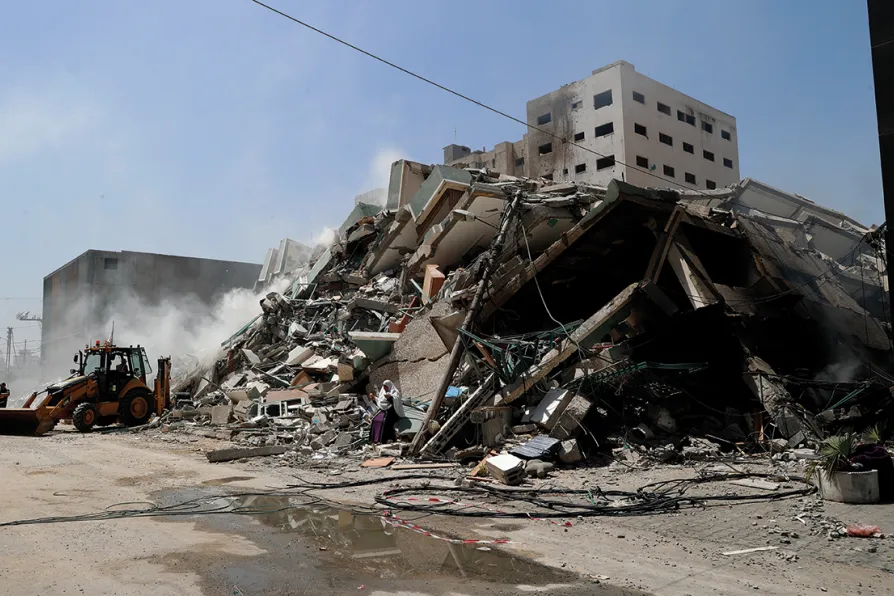From training Israeli colonels during the slaughter to protecting Israel at the UN, senior British figures should fear Article 3 of the Genocide Convention that criminalises complicity in mass killing, writes IAN SINCLAIR

 Workers clear the rubble of a building in Gaza that was destroyed by an Israeli air strike earlier this year
Workers clear the rubble of a building in Gaza that was destroyed by an Israeli air strike earlier this year
THOSE who are not familiar with how Israel, particularly the Israeli military occupation of Palestine, is actively and irreversibly damaging the environment might reach the erroneous conclusion that Tel Aviv is at the forefront of the global fight against climate change. The reality is the exact opposite.
In his speech at the UN Climate Change Conference Cop26 in Glasgow, Israel’s right-wing Prime Minister Naftali Bennett pushed the Israeli brand of “innovation and ingenuity” to “promote clean energy and reduce greenhouse gases.”
Israel uses this particular brand to sell everything, whether to promote itself as the saviour of Africa, to help governments intercept fleeing refugees, to push deadly weapons in the global market or, as Bennett has done in Scotland, supposedly save the environment.

With foreign media banned from Gaza, Palestinians themselves have reversed most of zionism’s century-long propaganda gains in just two years — this is why Israel has killed 270 journalists since October 2023, explains RAMZY BAROUD

Gaza’s collective sumud has proven more powerful than one of the world’s best-equipped militaries, but the change in international attitudes isn’t happening fast enough to save a starving population from Western-backed genocide, argues RAMZY BAROUD

RAMZY BAROUD asks why it has taken so long for even left-wing voices in the West to call out what Israel is doing

RAMZY BAROUD explains why the world can no longer ignore Palestine














